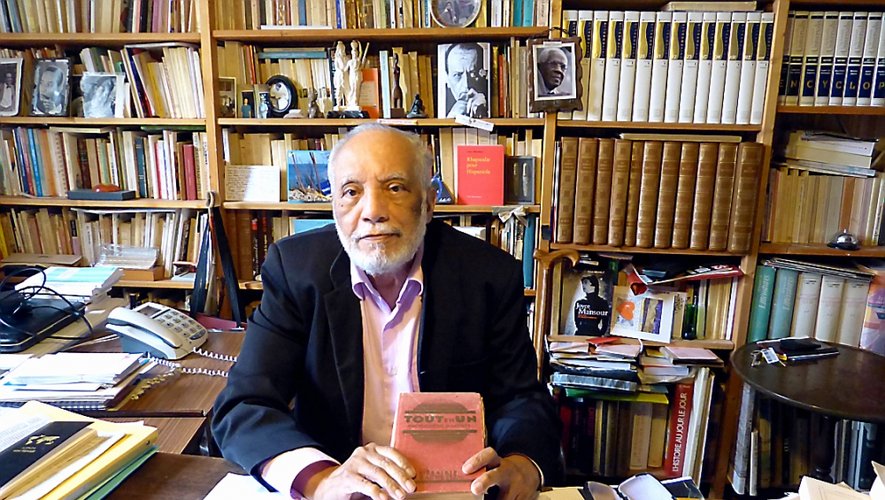|
Getting your Trinity Audio player ready...
|
Asselin Charles
Introducing René Depestre
René Depestre is today one of the most eminent living Haitian authors. Born in Jacmel in 1926, Depestre was exiled at the age of 20 for his youthful political activities and writings as one of the leaders of the 1946 anti-government uprising. He would thenceforth lead a nomadic life over several decades, with pauses of varying lengths in diverse countries —France, Czechoslovakia, Austria, Chili, Argentina, Brazil, and Cuba — until, after a stint at UNESCO (1978-1986), he finally settled in France.
From his home in the small village of Lézignan-Corbières, he continues to write those finely crafted works that enchant and enlighten readers, and impress the most exacting critics. His thematically and stylistically diverse oeuvre, produced over several decades, includes many titles in several genre: poetry (Étincelles, 1945; Gerbe de sang, 1946; Minerai noir, 1956; and Un arc-en-ciel pour l’Occident chrétien, 1967 [English translation, A Rainbow for the Christian West]; Poète à Cuba, 1976 [English translation, Poet in Cuba]; Rage de vivre : œuvres poétiques complètes, 2007; fictions (Le Mât de cocagne, 1979 [English translation, The Festival of the Greasy Pole]; Alleluia pour une femme-jardin, 1981; Hadriana dans tous mes rêves, 1988 [English translation, Hadriana in All My Dreams]; essays (Bonjour et Adieu à la Négritude, 1980; Le Métier à métisser, 1998); and an engrossing memoir (Bonsoir tendresse, 2018) in which he describes his trajectory as a writer, thinker, and political activist.
This prolific body of work spans an ideological spectrum from Marxism to Indigénisme, and Negritude, and develops a variety of themes from revolution to Vodou and erotic love. Each creation bears the stamp of Depestre’s unique style, a heady mélange of lyricism, réel merveilleux, surrealism, and humor. Appreciated and enjoyed by a faithful international readership, Depestre’s works have earned him over the years several prestigious literary awards. Ultimately, Depestre’s life course and writings make of him a most interesting figure: a cosmopolitan artist and thinker whose imaginary is yet profoundly anchored in the Haiti of his origins.
In this issue, we showcase a short story from René Depestre’s Bourse Goncourt collection, Alléluia pour une femme-jardin: “L’enchantement d’une heure de pluie” (translated into English by Asselin Charles as “The Enchantment of a Rainy Hour”). This erotic tale written in Depestre’s signature poetic style will undoubtedly delight our readers.
Bonne lecture!
Bonne lecture!
If you have any comments or suggestions, do not hesitate to write to us. In advance, thank you very much.






